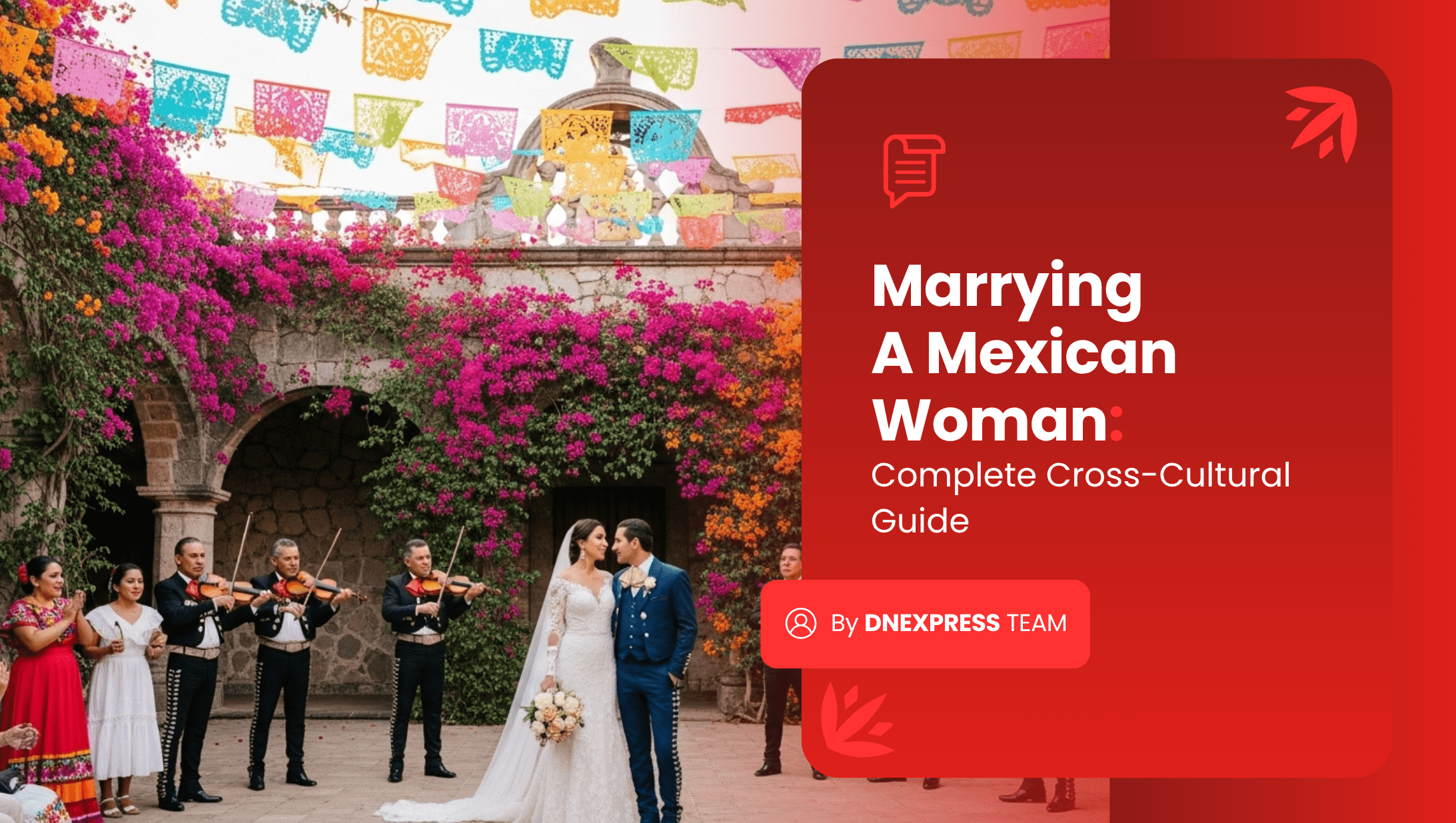Marrying a Mexican woman can open the door to love and legal opportunities, like Mexican residency or dual citizenship. But it also comes with unique cultural, legal, and paperwork challenges. Here's what to expect, and how to do it right, without mistakes or delays.
Whether you're planning to build a life together in Mexico, want to bring your wife to the U.S., or you're navigating how this impacts your dual citizenship path, your next steps matter.
A successful cross-border marriage goes beyond love. It's about legal strategy, cultural awareness, and avoiding paperwork pitfalls that can cost you time and money.
We've helped hundreds of binational couples turn confusing, slow, and sometimes impossible immigration processes into a smooth, secure path forward, with or without a consulate visit.
If you're ready to understand the full picture, from culture shocks to dual citizenship timelines, keep reading.
Below, we'll break down exactly what changes when you marry a Mexican woman, how it affects your legal status, and what you need to do next to make the relationship, and your paperwork, work.
Does Marrying a Mexican Woman Make You a Citizen?
Not automatically, but it opens the door. When a U.S. citizen marries a Mexican national, they become eligible to apply for Mexican temporary residency.
After two years of marriage-based residency, you can apply for Mexican citizenship through naturalization, without needing to renounce your U.S. citizenship. This is confirmed by the U.S. Embassy in Mexico.
But don't confuse marriage with automatic nationality. You won't receive a passport or dual citizenship because you're married. There's a process, and mistakes at the beginning can delay everything that follows.
Legal Path: From Marriage to Citizenship
- Get married legally in Mexico or register your foreign marriage in Mexico. A civil marriage is the only one recognized for immigration.
- Apply for temporary residency through marriage. You'll need to show your marriage certificate and proof of relationship. No income requirement needed, your spouse sponsors you.
- Maintain residency for 2 years. You must renew the residency and keep your immigration status in good standing.
- Apply for Mexican citizenship. After 2 years, you can apply for naturalization with supporting documents, including marriage certificate, residency proof, and ID.
- Get your Mexican passport. If approved, you'll have full dual nationality rights, including the ability to vote, own property, and access public services.
Note: If you're not living in Mexico full-time, you may still be eligible. There are exceptions, and we help couples abroad secure residency and citizenship without living in-country.
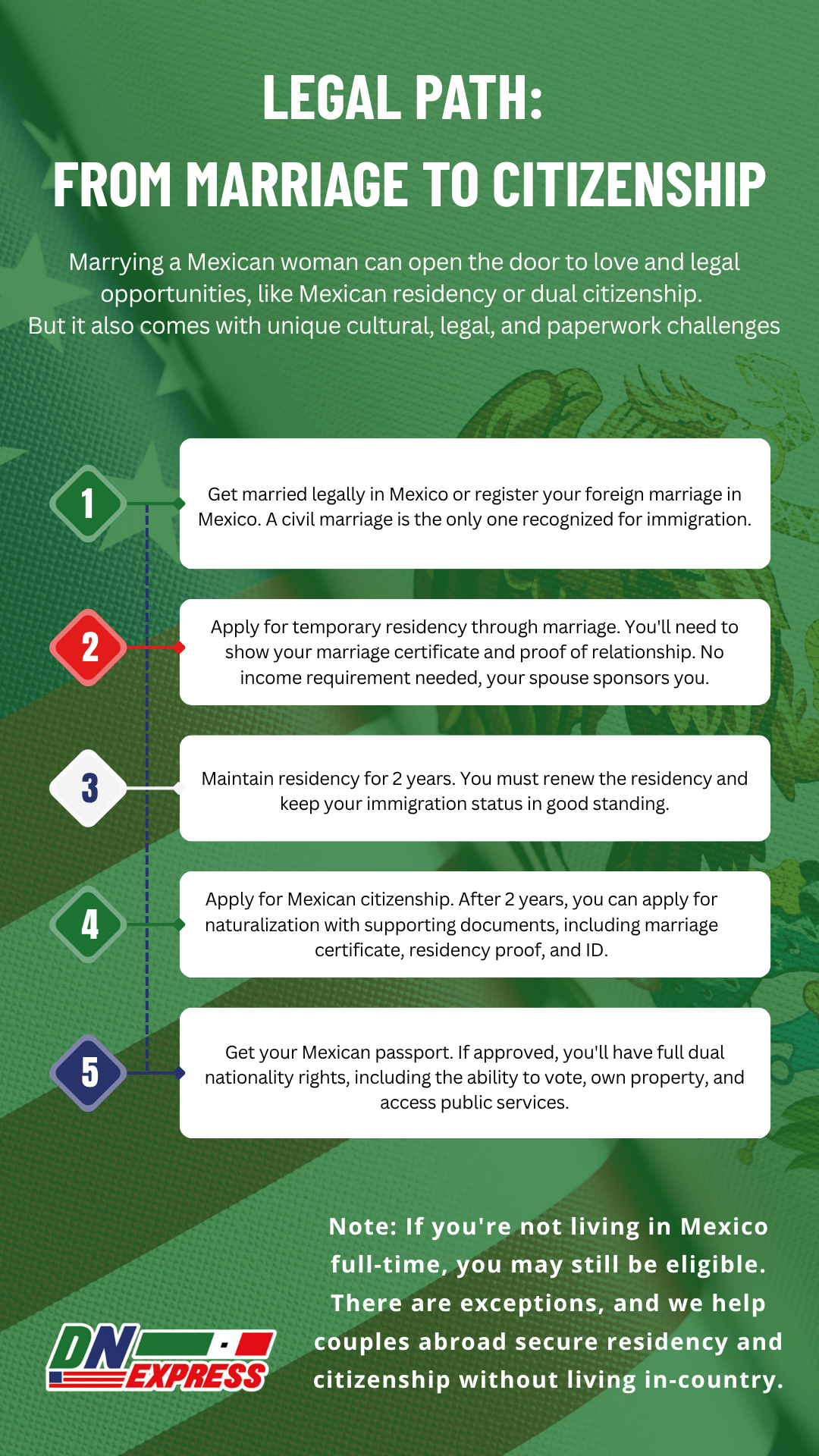
What to Expect When You Marry a Mexican Woman
Marrying someone from another country goes beyond crossing cultures, it's about navigating expectations you may not even realize exist until you're in the middle of them.
Mexican culture is beautiful, family-centered, and rich with tradition, but if you're not prepared, even small missteps can create stress for you and your relationship.
Cultural Norms That May Surprise You
One of the biggest adjustments? Family is everything. When you marry a Mexican woman, you're marrying into her entire family, not only one person.
Expect her parents, siblings, aunts, uncles, and cousins to be involved, sometimes in ways that might feel overwhelming at first.
In many families, traditional gender roles still shape expectations. You may be expected to be the financial provider, while she takes on domestic roles, especially if her family comes from a rural or conservative area.
That doesn't mean your partner lacks independence, it means cultural norms still carry weight.
Religion plays a huge part in Mexican life. Catholicism influences weddings, holidays, and even family opinions about relationships.
You don't need to convert, but showing respect for her faith and her family's traditions goes a long way.
Weddings themselves are a big deal, think multi-day events, packed dance floors, and despedidas de soltero/a (bachelor and bachelorette parties) that rival Vegas weekends.
Many couples opt for both a civil ceremony and a religious one, with hundreds of guests, godparents (padrinos), and regional customs.
And when it comes to affection? Expect PDA and emotional expression that might exceed what you're used to.
Jealousy, too, is sometimes seen as a sign of love, which can feel intense if you're not familiar with those cultural signals.
Legal and Bureaucratic Hurdles
Even if your relationship is strong, paperwork can break the process if you're not careful.
In Mexico, only civil marriages are legally recognized, not religious ones. That means you either need to get married in front of a judge in Mexico, or register your foreign marriage with the Mexican civil registry.
This step alone can cause delays if you don't prepare. You'll need:
- Apostilled marriage certificates
- Translated documents
- Proof of identity (often with matching names)
But here's where it gets tricky: name mismatches are one of the most common reasons applications get denied or delayed.
If your name is spelled differently in your U.S. passport than it is on your marriage certificate, even by a single accent or letter, the system might reject your paperwork.
The good news? You don't have to travel or wait months for consular appointments.
Our legal team handles these corrections and filings remotely, using secure mail and bilingual support so you never miss a deadline or document.
What Are the Benefits of Marrying a Mexican Citizen?

Marriage to a Mexican citizen goes beyond building a life together, it also unlocks unique legal advantages, especially for foreigners seeking residency, citizenship, or access to services in Mexico.
Whether you're planning to move, retire, or simply secure options for the future, this path can fast-track opportunities that would otherwise take years.
Residency & Citizenship Benefits
Unlike other immigration categories, such as work, retirement, or investment visas, marriage-based residency doesn't require proof of income, property ownership, or long-term stays.
If your spouse is Mexican, you can apply for temporary residency almost immediately.
Here's what the process looks like:
- Step 1: Get married and register the marriage in Mexico (or through a consular process if abroad).
- Step 2: Apply for temporary residency with your spouse as your sponsor. No need to show income.
- Step 3: After two years, you become eligible to apply for Mexican citizenship through naturalization.
- Step 4: If granted, you can obtain a Mexican passport and enjoy full dual nationality benefits.
Once you obtain legal residency, you'll also gain access to:
- Public healthcare (IMSS or ISSSTE) if your spouse is enrolled
- Mexican banking services, critical for property, business, or remittance use
- Employment without restriction
- Local education and tuition discounts for children
- Simplified future visa and citizenship applications for your kids
This is especially powerful for:
- Retirees wanting legal status in Mexico without investing or proving monthly income
- Binational couples raising children between countries
- Foreign spouses wanting long-term roots without consulate hassles
And yes, you can do this without living in Mexico full-time. We help clients who live in the U.S. complete the process 100% remotely, often without needing a single trip across the border.
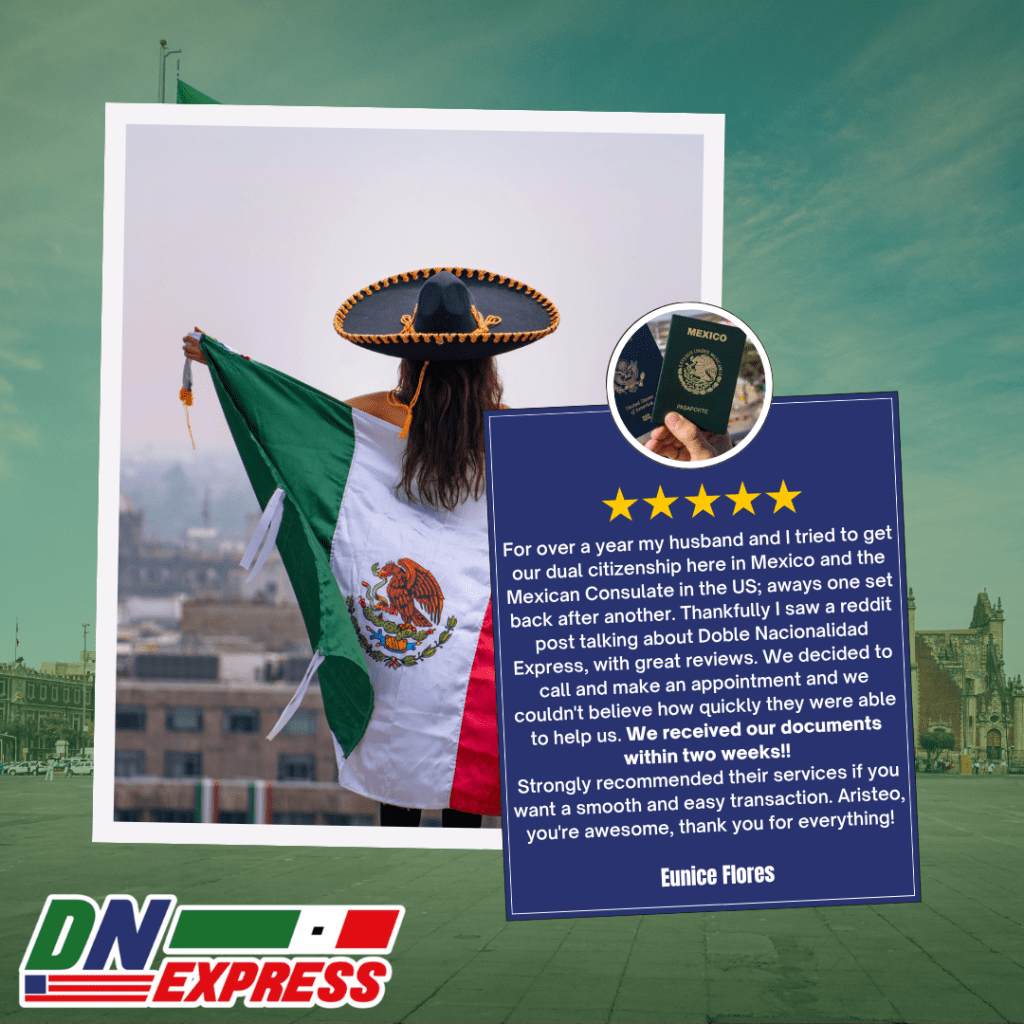
Common Worries, And What to Do About Them
It's natural to have doubts or second thoughts when you're blending lives, especially across borders.
We've worked with hundreds of couples and the same fears come up over and over. Here's what you need to know (and why you don't need to panic).
What If It's Only for Papers?
One of the most common concerns we hear is this: “How do I know they're not marrying me only to get residency or citizenship?”
It's a valid fear, and the government shares it.
That's why marriage-based residency is one of the most scrutinized immigration categories in both the U.S. and Mexico.
Mexican immigration (INM) has safeguards in place:
- Couples must submit joint documentation (leases, bank accounts, photos, etc.)
- You may be called for a relationship interview
- Applications can be denied if there are red flags or inconsistencies
But here's the upside: If your relationship is genuine, there's nothing to hide.
You don't have to prove you're perfect, simply that you're honest, committed, and living in reality.
And if you want help putting the paperwork together in a way that shows that truth clearly? That's exactly what we do.
What If She's Undocumented in the U.S.?
If your partner is undocumented in the U.S., you're probably asking:
“Can we still marry? Will it help her status?”
The answer: Yes, you can marry. But timing and location matter.
For couples in this situation, marrying in Mexico is often safer. Once married, your wife can:
- Apply for Mexican identity documents (CURP, birth certificate corrections, etc.)
- Re-enter the U.S. legally if processed correctly
- Pursue adjustment of status through your sponsorship, with fewer risks
We've helped couples who were stuck in limbo, afraid of ICE, nervous about mistakes, unsure whether to go to the consulate, finally get peace of mind through a structured, legal path forward.
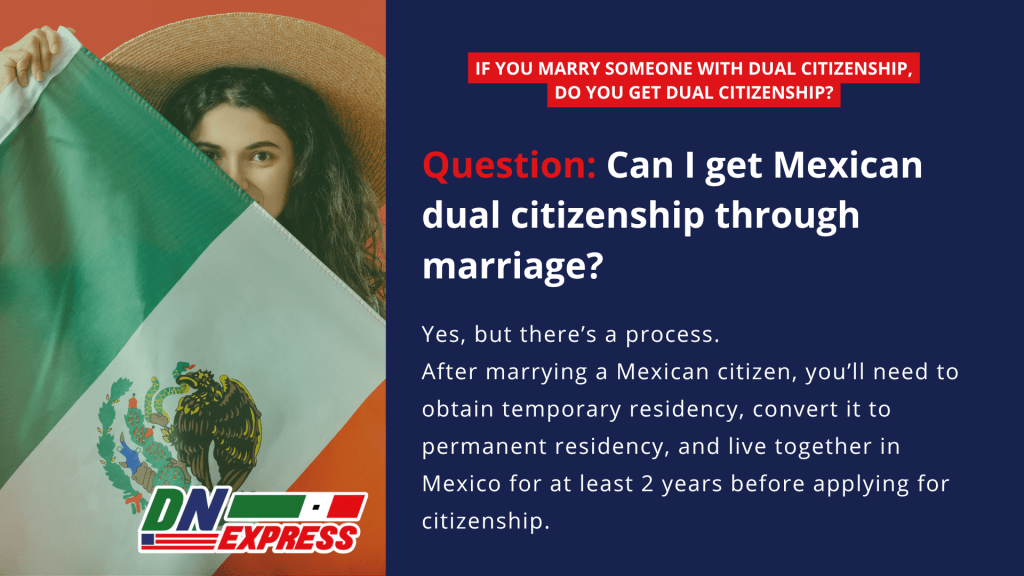
Will I Lose My U.S. Citizenship?
Absolutely not.
The U.S. allows dual citizenship. Mexico also allows dual nationality, even for naturalized citizens.
That means you can hold a U.S. and Mexican passport at the same time, vote in both countries, and legally operate on both sides of the border. According to U.S. immigration law, you don't need to choose between nationalities.
You'll still be a U.S. citizen. You'll also be recognized as Mexican, through marriage, paperwork, and process.
What Happens If We Divorce?
Let's be honest, not every marriage lasts. So what happens if things fall apart?
You can divorce in either country, as long as it's done legally. Here's what to expect:
- If you divorce in the U.S., that ruling can be recognized in Mexico (with translation and apostille)
- If your spouse lives in Mexico, a Mexican court may retain jurisdiction, especially if there are children involved
- Property, alimony, and custody will be handled based on the laws of the country where the divorce takes place
If your legal status (residency or citizenship) was based on marriage, it doesn't necessarily get revoked, but it can complicate renewals or future applications.
We always recommend documenting every legal step and keeping your residency status up to date. And yes, we can help guide you through that, too.
Can I Get Fast Citizenship Through Marriage?
Yes, and Mexico is one of the fastest countries in the world for gaining citizenship through marriage.
If you're legally married to a Mexican citizen and obtain temporary residency through that relationship, you can apply for naturalization after two years.
That's significantly faster than countries like the U.S. (3-5 years), Canada (3 years), or most of Europe.
What makes Mexico's process even more accessible:
- No Spanish language exam required
- No cultural knowledge or history test
- No requirement to renounce your current nationality
- Flexible residency requirements, even part-time residence may qualify
The process is handled by Instituto Nacional de Migración (INM) and then SRE for citizenship.
❓ “Which country gives fastest citizenship by marriage?” Mexico ranks among the fastest, granting eligibility in 2 years, with fewer hurdles and more flexibility than most countries.
That said, you still need to meet documentation requirements, maintain valid residency, and complete the naturalization application process correctly.
Mistakes here can delay or block approval.
We've helped U.S. citizens navigate the marriage-to-citizenship process smoothly, even while living abroad.
Our bilingual legal team ensures your paperwork is flawless, your timeline stays on track, and your status is protected every step of the way.
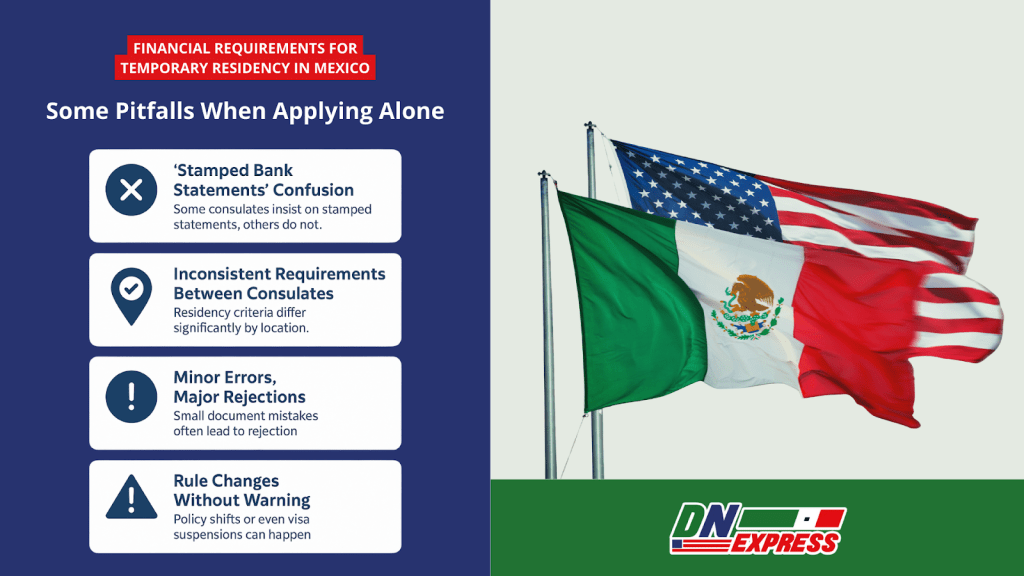
90-Day Rule and Immigration Timing
If you've heard of the “90-day rule,” it's key to know: this rule applies to the U.S., not Mexico.
But if you're marrying a Mexican woman and planning cross-border travel, understanding this timing is still critical.
What Is the 90-Day Rule (and Why It Matters)?
In the U.S., the “90-day rule” refers to the idea that if someone enters the U.S. on a tourist visa or ESTA and gets married within 90 days, immigration authorities may assume fraudulent intent, meaning, the person lied about their true purpose for entering the country.
This can complicate or even derail future green card applications.
That's why it's usually safer to marry after the 90-day window or to adjust status from abroad.
Mexico Has No 90-Day Rule, But Timing Still Matters
If you're in Mexico on a tourist visa and decide to get married or apply for residency, you technically can.
Mexico does allow tourist-to-residency transitions, but:
- You may need to leave the country and return
- Some immigration offices (INM) are stricter than others
- The process can be slow, inconsistent, or rejected if paperwork isn't in order
What's the Best Strategy?
- If you're planning to marry in Mexico: start your paperwork before your trip, or prepare to return home and apply through the proper channels.
- If you're already married: register your marriage and start the residency process from abroad.
We help couples avoid delays, denied entries, or consulate backlogs by filing remotely. In many cases, we can secure legal residency or correct documents without either spouse needing to travel.
Why You Shouldn't DIY Your Marriage-Based Application
Marriage might feel like the hard part, but navigating the legal process after you say “I do” is where most couples run into trouble.
From mismatched documents to confusing government rules, even a small mistake can stall your path to residency or citizenship.
Risks of Doing It Alone
We've seen it too often: smart, committed couples file on their own, and end up rejected, delayed, or stuck for months.
Why? Because Mexico's system isn't paperwork alone, it's bureaucracy, and it's slow, outdated, and unforgiving.
Here are the most common pitfalls we see:
- One typo on your marriage certificate or CURP (Mexico's ID number) can delay your process for years
- You might get stuck in a loop requiring your spouse to appear at a consulate, even when it's unnecessary
- Missing records, translation errors, or not having an apostille can cause outright rejection
- Some states or offices refuse to process foreign marriages unless everything matches exactly
Even if you're 100% eligible, your case might still get denied because your documents weren't presented properly. For marriages performed in the U.S., you'll need to ensure they're properly recognized in Mexico.

Why DNExpress is Different
We built Doble Nacionalidad Express for people like you, cross-border couples who want love to win, not lose to paperwork.
Our mission is to make Mexico's confusing and often unfair documentation process simple, affordable, and accessible.
Here's how we do that:
✅ No consulate visits required, we handle it remotely
✅ Licensed Mexican attorneys review and submit your case
✅ Flat-rate pricing, no surprise fees
✅ Mail-in and digital document support, perfect for long-distance couples
✅ Help with rejected cases, we fix what others mess up
✅ Bilingual team via phone, email, or WhatsApp
Whether you're already married or getting started, we'll help you secure legal status, avoid delays, and build your future across borders, with zero guesswork.
How to Get Started Today
You don't need to wait months for a consulate appointment.
You don't need to navigate confusing government websites.
And you definitely don't need to figure this out alone.
Here's how to get started with Doble Nacionalidad Express:
- ✅ Schedule a free case review, no pressure, no commitment
- ✅ Send your documents securely via email, WhatsApp, or mail
- ✅ Receive a legal assessment within 24-48 hours, reviewed by a licensed Mexican attorney
- ✅ Start your process remotely, no travel, no embassy visits, no wasted time
Whether you're marrying a Mexican citizen, already married, or trying to fix a past mistake, we'll give you a clear path forward.
The sooner you start, the sooner you can secure your residency, dual citizenship, and peace of mind.

